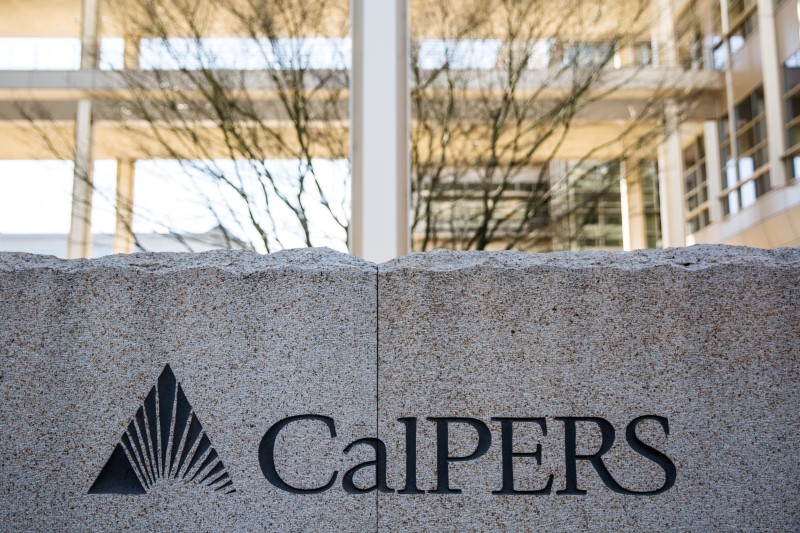By Robin Respaut
MONTEREY, Calif. (Reuters) - The California Public Employees' Retirement System (CalPERS) on Monday said it was considering making direct investments in private companies, a potential major shift in strategy that would be the first such action by a U.S. public pension fund.
The change, discussed at a meeting of CalPERS board in Monterey, would be closely watched by other U.S. public pensions as they look to improve returns on their investments, in part by cutting fees.
The $323 billion pension fund, the largest in the country and a trend setter, has been under increasing pressure to achieve returns closer to the fund's assumed rate of return of 7 percent by 2020.
In the fiscal year ended June 30, private equity investment returned 13.9 percent, the second best performer behind public equities, or stock portfolio. The asset class helped to boost the fund's total year-end returns to 11.2 percent, exceeding expectations for the first time since 2014.
Private equity has been CalPERS' best performing asset class in the past two decades and accounts for about $26 billion of its portfolio. But CalPERS mainly invests in private equity funds and has been criticized for accepting the high fees and limited disclosures typically associated with the asset class.
The shift in strategy, if adopted, is likely to require a considerable investment in staff and expertise in the years ahead to handle the strategic shift.
CalPERS Chief Investment Officer Ted Eliopoulos told Reuters he would recommend CalPERS "explore setting up a separate vehicle" for direct investments and expand the current co-investment program.
Eliopoulos suggested CalPERS focus on opportunities that do not compete with its current private equity investments, such as owning companies for longer than 10 years, and investing in technology and life science companies.
"CalPERS has a unique opportunity to be a leader in the co-investment space," Sandra Horbach, U.S. buyouts co-head at The Carlyle Group (NASDAQ:CG), told the board on Monday.
CalPERS' massive size would make it a formidable player and allow the fund to dictate some investment terms, Horbach said.
Most U.S.-based funds shy away from such investments, while Canadian pension funds are considered leaders in the strategy.
By its own account, CalPERS has developed somewhat of a negative image among private equity firms as being difficult to work with and slow to make decisions, John Cole, CalPERS investment director, told the board at Monday's meeting.

A number of funds "have told us that we have become too unpredictable to do business with, and many larger general partners are cutting back the amounts that they are willing to allocate to us in their new funds", Cole said.